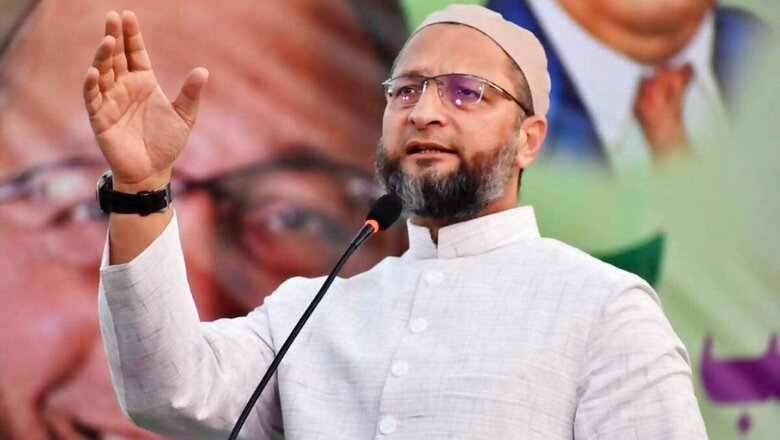
views
For more than four years, All India Majlis-e-Ittehadul Muslimeen (AIMIM) chief Asaduddin Owaisi has been trying to build a respectable base in Uttar Pradesh, which has 19% Muslim population. However, despite his charisma and appeal within the community, he has so far failed to convert it into a popular electoral support.
Main opposition parties seem to have cold-shouldered AIMIM. Recently, Bahujan Samaj Party (BSP) chief Mayawati categorically denied any possibility of forging an alliance with AIMIM. Her tweets left the AIMIM leadership embarrassed. Though Owaisi denied being in any dialogue with the BSP, his party’s state leadership had been giving such impressions. Mayawati in her tweets termed such speculations as “baseless and an attempt to undermine the BSP”. She further said her party will go solo in the elections.
The Aam Aadmi Party (AAP) too has declared that it has no business with any alliance of which AIMIM is a part. The party’s stand comes in the backdrop of AIMIM’s recent move to be part of the Bhagidari Sankalp Morcha, a political front floated by nine smaller parties, including primarily Om Prakash Rajbhar-led Suheldev Bhartiya Samaj Party (SBSP). AAP spokesperson Vaibhav Mahehwari said, “We were approached by the SBSP leadership. Our dialogue is on… but getting into an alliance with AIMIM being its constituent is not acceptable to us.”
Other major players such as Congress and Samajwadi Party too have shared the similar view.
Owaisi’s claim to contest 100 seats has not yet been endorsed by Rajbhar. Talking to News18, SBSP spokesperson Arun Rajbhar said, “AIMIM is part of our alliance. We aim at making a strong front of the deprived classes comprising the backward castes and Muslims, but seat distribution is still a work in progress. We are also in talks with other parties. Which party will contest how many seats will be decided at the later stage.”
AIMIM tested the political waters in Uttar Pradesh in 2017 assembly polls. The party had contested on 38 seats but failed to make a mark. Barring four seats, its candidates lost deposits in all other constituencies. The party received slightly above two lakh votes, which was roughly 0.2% of the total votes polled.
In 2019 General Elections, AIMIM didn’t contest in Uttar Pradesh on the pretext of not wanting a split in the non-BJP votes. Behind the gesture, it was actually the inability to find a respectable base in the previously concluded assembly elections. The Muslim voters have chosen to stick to either the SP or the BSP in their effort to stop the BJP.
So, why are key opposition players avoiding AIMIM when it comes to Uttar Pradesh? After all, Mayawati did have an alliance with the party in recent Bihar elections. The answer lies in the AIMIM’s perception and its inability to emerge as a broad-based party cutting across religious and caste lines.
AIMIM, however, remains unfazed. Party’ s national spokesperson Asim Waqar dismissed all allegations. He said, “Opposition parties such as SP, BSP and Congress are pseudo secular and have always treated Muslims just as a vote bank. “Our party will contest 100 seats and redefine the UP politics.”
Read all the Latest News, Breaking News and Coronavirus News here.



















Comments
0 comment